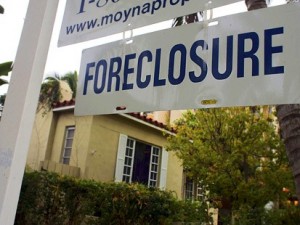 During the last decade many parts of the United States suffered from drastic decreases in property values. Housing prices dropped overnight, and homeowners lost their equity in their real property. Many borrowers found that the balance on the mortgage secured by their property was much higher than the value of the property.
During the last decade many parts of the United States suffered from drastic decreases in property values. Housing prices dropped overnight, and homeowners lost their equity in their real property. Many borrowers found that the balance on the mortgage secured by their property was much higher than the value of the property.
Some borrowers had the money to simply wait for housing values to rebound. However, many people needed to sell their property and couldn’t because the market price for the property would not pay off the mortgage. There are few options for people in this situation. If they can’t afford to pay the mortgage then the property will eventually be foreclosed by the mortgage company. What happens after foreclosure depends on the laws of the state in which they live. Specifically, does state law allow for mortgage deficiencies on foreclosed properties?
Note that in some states recourse laws apply which means that after the mortgage lender forecloses on a property and the proceeds of the sale are applied to the balance on the mortgage, the lender can get a deficiency judgment against the borrower for the unpaid balance. For example, a house is foreclosed and the sale price is $100,000. The balance of the mortgage was $150,000 before the sale. The sale price is applied to the remaining balance leaving $50,000 unpaid. The mortgage lender can seek a deficiency judgment of $50,000 and collect it from the borrower personally. This example does not account for multiple lienholders and the cost of the sale itself. In practice the mortgage deficiency could be much higher.
In non-recourse states, the mortgage lender cannot get a deficiency judgment against the lender. They are entitled to collect whatever they can from the sale of the house, but cannot collect from the borrower personally. In these types of situations lenders are less likely to foreclose on property if there is a chance that the borrower will begin making payments or that the property values will rebound.